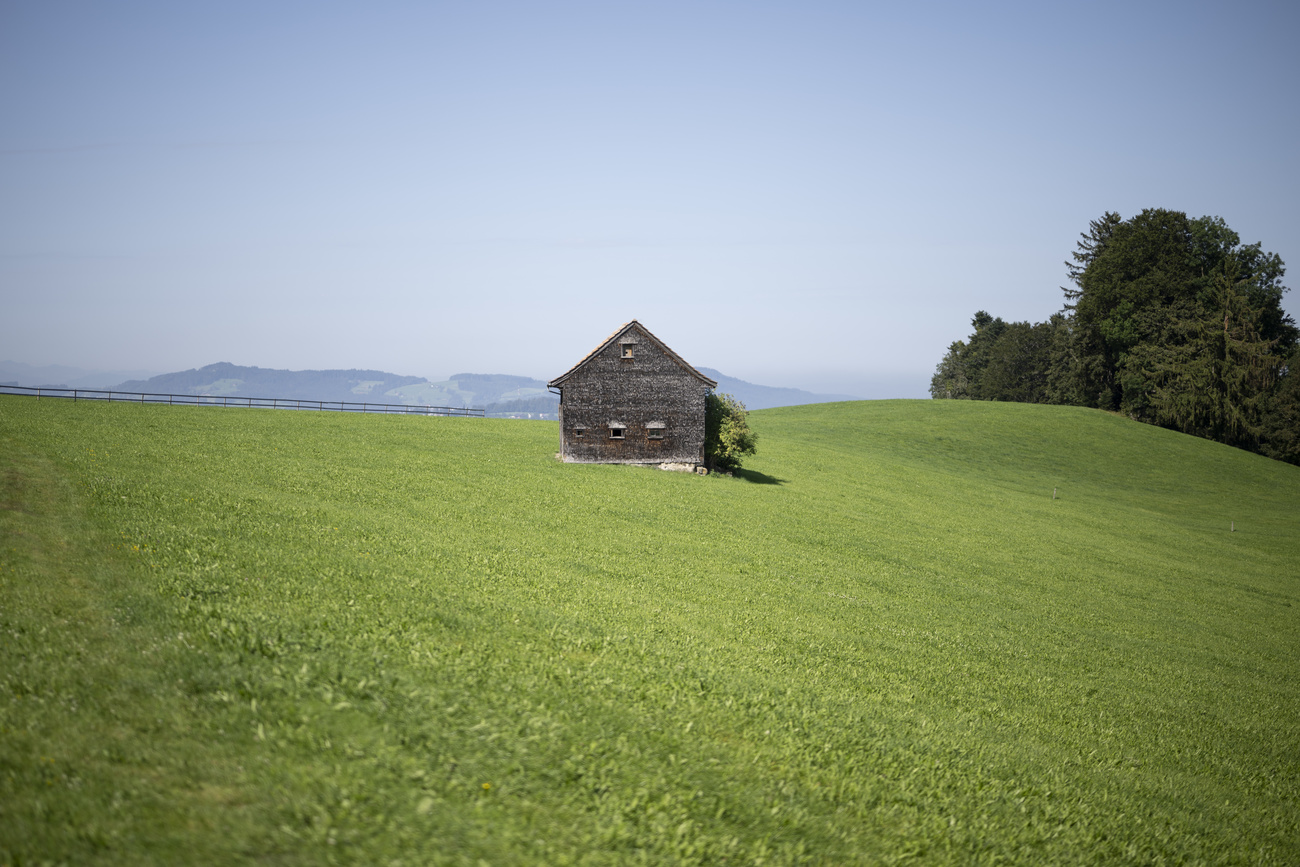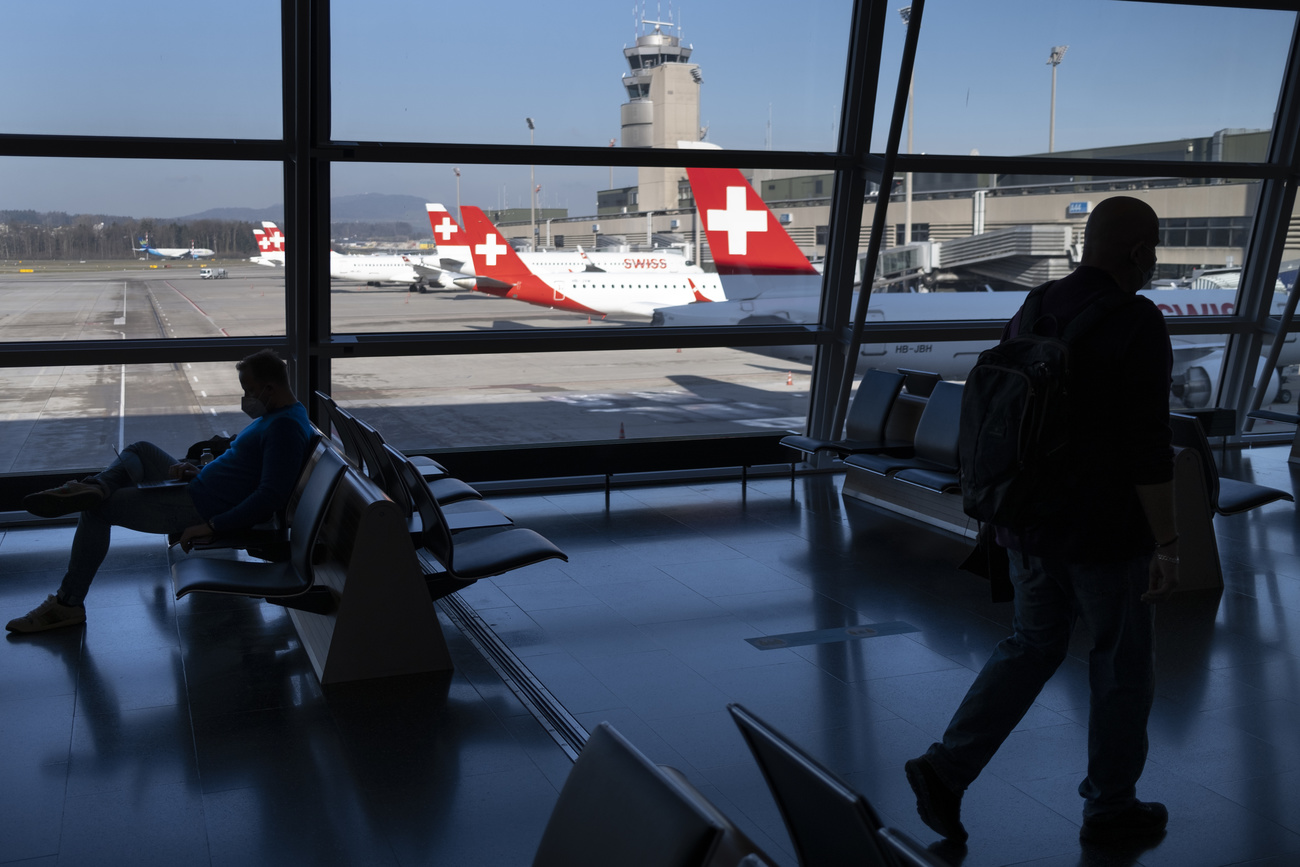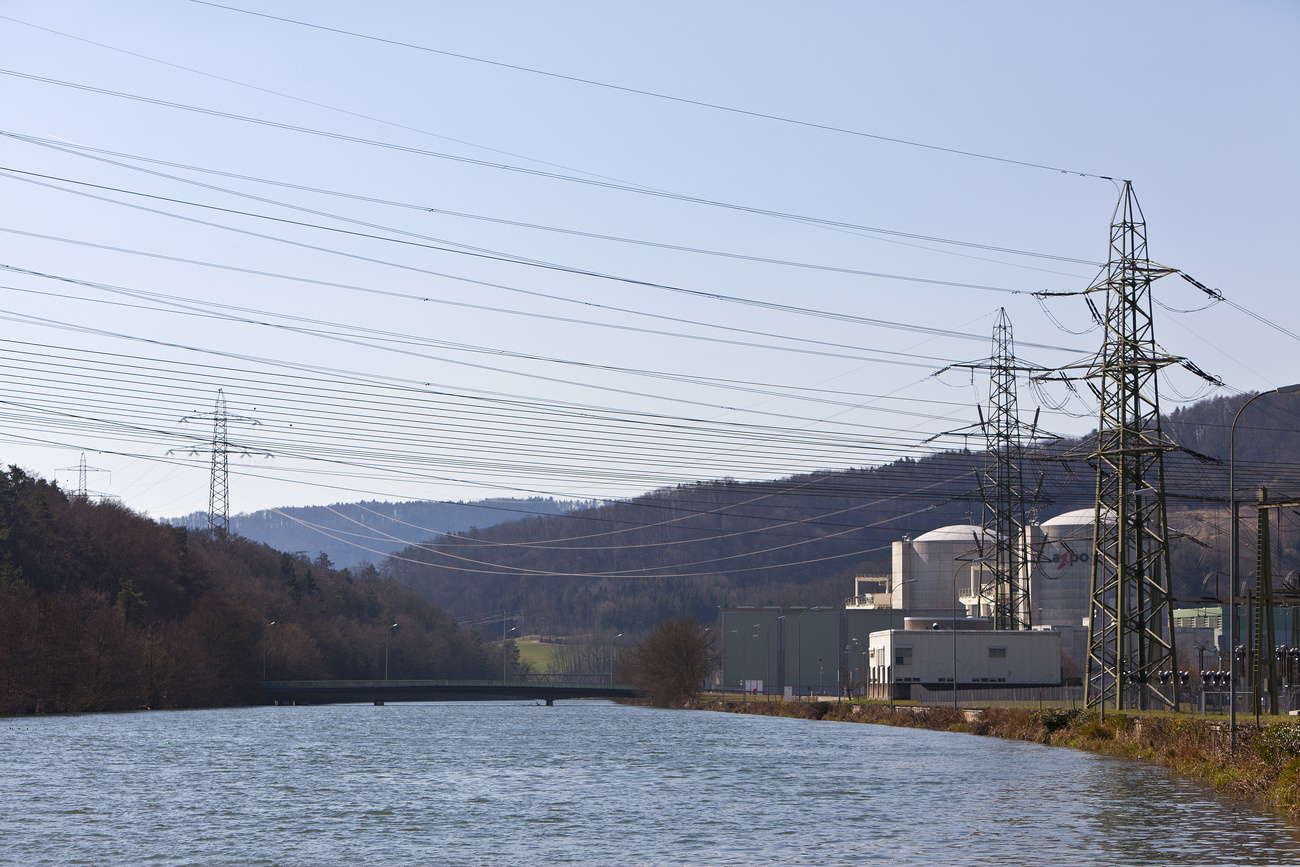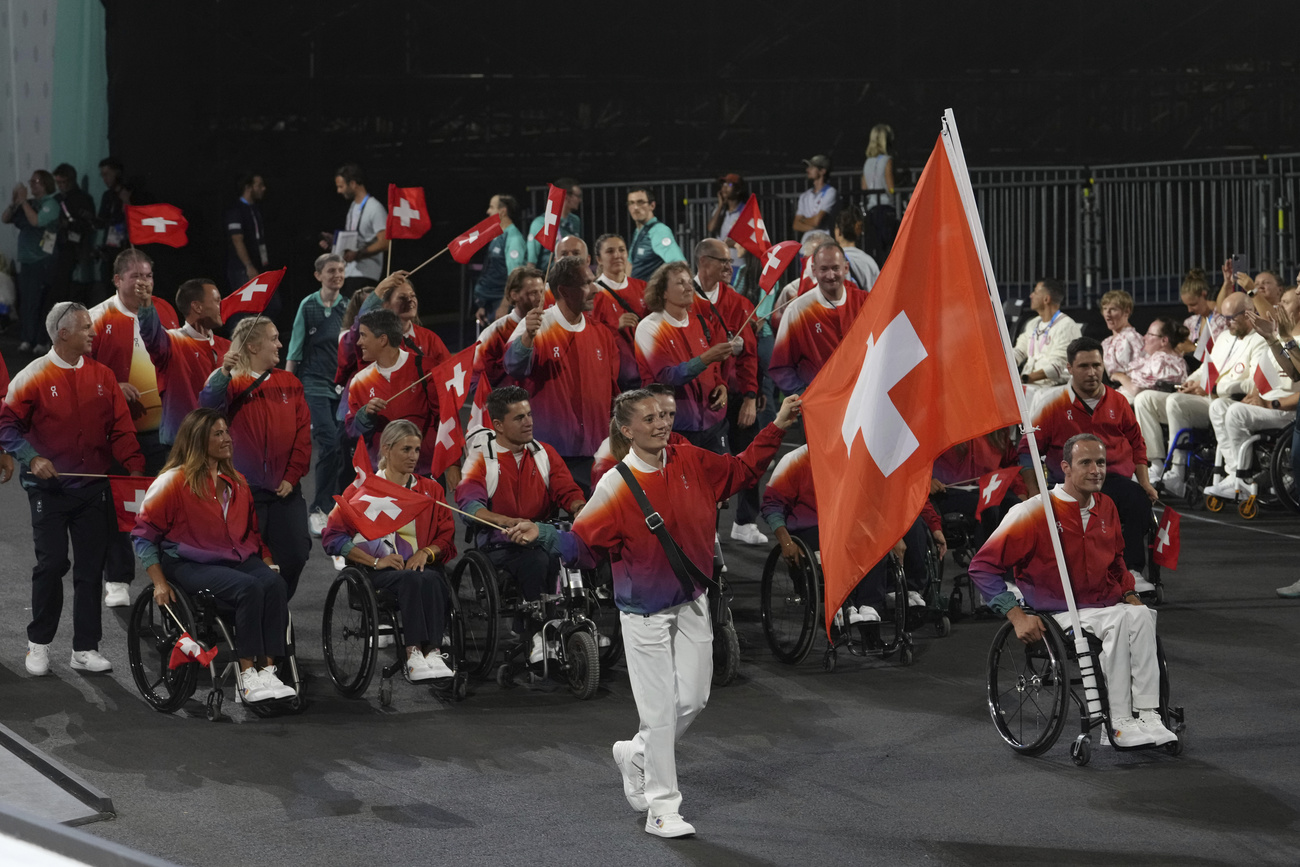

Switzerland Today
Greetings from Bern,
I’ve had the pleasure of penning this news briefing periodically for the past three years, and never more frequently than in these last six months. Now it’s time to pass on the baton to another roster of journalists who will be bringing you your daily dose of news from Switzerland. Their job will be to curate the best stories and images for you, the Swiss Abroad, in a revamped newsletter.
So watch this space starting next Monday. In the meantime, there’s Swiss Paralympic glory and the return to nuclear to get you up to speed on.

In the news: Condom use more prevalent among Swiss teenagers than other European youth, a Syrian girl has her residence permit refusal overturned, SWISS flights miss their punctuality target, and more money for pensioners and families with children.
- Swiss teenagers were more likely to have used a condom during their last sexual encounter than youth in other European countries, says a World Health Organisation study that polled 242,000 15-year-olds on unprotected sex.
- The Fribourg authorities must reverse a previous decision and grant a residence permit to a 15-year-old Syrian girl who has lived in Switzerland with her family for ten years, the Federal Court ruled.
- So far this year Swiss International Air Lines (SWISS) has missed its own target of a punctuality rate of 70%. The summer holiday period was especially tricky, as flights were disrupted by external factors like thunderstorms.
- From 2025, old-age and disability pensions will increase by 2.9% in accordance with a mixed index that accounts for inflation and salary trends. Child and education allowances will also increase.

No to nuclear! Actually, make that a yes …
You may remember that, back in 2017, a majority of Swiss voters (58%) cast their ballot in favour of a ban on building new nuclear plants in the country. It followed years of national debate over the safety of nuclear energy prompted by the accident at a reactor in Fukushima, Japan in 2011.
But now energy minister Albert Rösti is talking of a “paradigm shift” as he goes about defending yesterday’s decision by the Federal Council to support, in principle, the lifting of the ban on nuclear. War in Ukraine and climate-neutrality targets have apparently refocused minds in Bern. For the government, it’s about keeping all technological options open for ensuring energy supply in the future.
“The option of lifting the ban […] is for a long-term strategy […] because in the long term we will need a lot more electricity than we do today,” Rösti tellsExternal link Swiss public television SRF. “The worst thing that can happen to Switzerland in the long term is an electricity shortage.”
As for the risks associated with nuclear power – a key factor in the 2017 vote – Rösti insists it remains the priority. “We have among the best controls and it will remain this way in the future,” he says.
But while the energy companies that run the country’s four existing nuclear power plants say it’s wise to have all tech options on the table, they currently have no plans to build new reactors. For one thing, construction can take a couple of decades and is extremely costly.
Investing in the plants that are still running so they can operate safely and efficiently in the long term is the top priority for Alpiq, saysExternal link Amédée Murisier, director of the country’s second-largest energy company.
While politicians on the right have broadly welcomed the decision, those on the left are up in arms. The Green Party and Liberal Greens decry the lack of respect for the will of the people and say they will do all they can to oppose the construction of new nuclear plants.
“[Nuclear] is a technology of the past that continues to represent a danger,” Green Party president Lisa Mazzone tellsExternal link Swiss public radio RTS. To run additional plants, Switzerland would need to continue importing uranium principally from Russia, she adds. And the problem of how to dispose of dangerous radioactive material still has not been solved.
With the battlelines drawn, the debate over nuclear power is only just beginning – again.

It’s off to the Champs Elysées for Swiss Paralympians
French chanteur Joe Dassin famously sang about being able to find “anything you want” on the Champs Elysées, one of the world’s most iconic avenues. Since last night, that “anything” includes Paralympic fever. The Parisian street was the setting for the opening ceremonyExternal link of the Paralympic Games, which runs for the next 11 days in the French capital.
Switzerland is sending its biggest Paralympic team yet to the Games. In all 27 Swiss athletes took part in the parade, led by flag bearers and track-and-field stars Marcel Hug and Elena Kratter.
Perhaps recklessly, the Swiss Paralympic committee says it’s hoping the athletes will bring home 14 medals to match the haul achieved in Tokyo three years ago. Then again, Swiss Olympic did not set a target for Paris 2024, only to have to reckon with a disappointing eight medals, far below what the country achieved in Japan (13 medals).
Hopes are firmly pinnedExternal link on some key players. Hug, now a six-time Paralympian, was a gold medallist in Tokyo in no less than four disciplines: the wheelchair race in the 800m, 1,500m, 5,000m and the marathon. Kratter, meanwhile, was a bronze medallist in Tokyo in the long jump.
Eyes will also be on super athlete Catherine Debrunner, who’s competing in six (six!) distances in wheelchair racing spanning 100m to the marathon. The Swiss say podium finishes are also possible in swimming and cycling.
So what’s the verdict on Day One of the competition? As I write this, cyclist Flurina Rigling has clinched bronze in the 3,000m pursuit for Switzerland’s first medal of the Games. And over at the pool, Nora Meister qualifiedExternal link for the 50m freestyle final, which will take place this evening, so fingers crossed for her!
More

In compliance with the JTI standards
More: SWI swissinfo.ch certified by the Journalism Trust Initiative




























